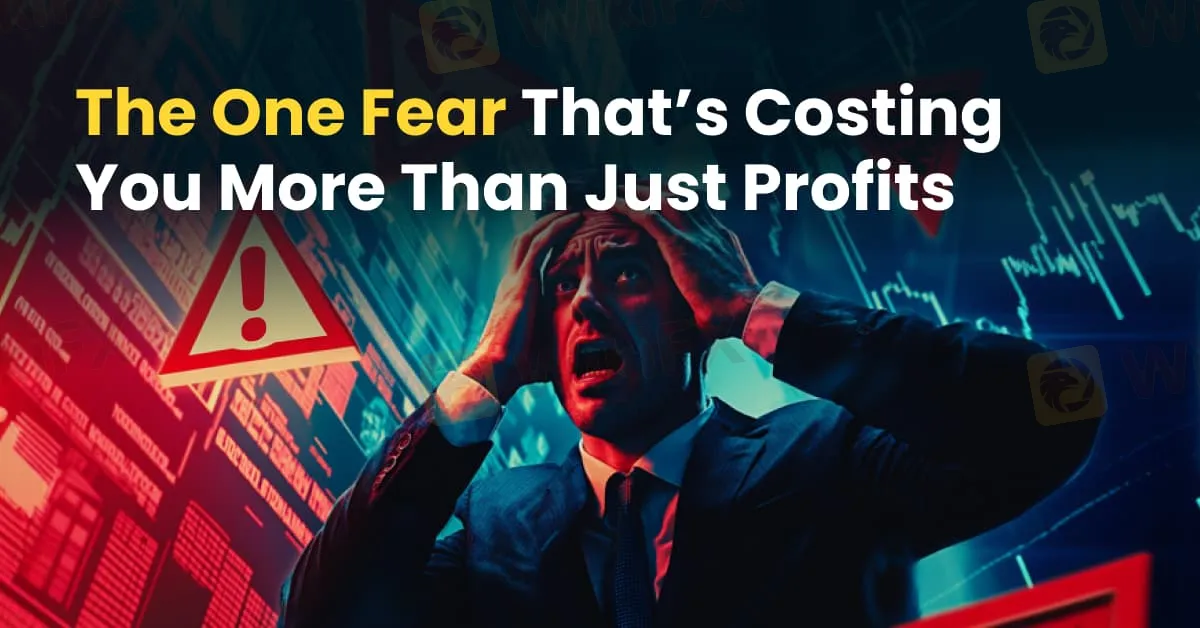简体中文
繁體中文
English
Pусский
日本語
ภาษาไทย
Tiếng Việt
Bahasa Indonesia
Español
हिन्दी
Filippiiniläinen
Français
Deutsch
Português
Türkçe
한국어
العربية
The One Fear That’s Costing You More Than Just Profits
Abstract:The fear of missing out (FOMO) is NOT what you think it is! Read the three lesser-discussed components that contribute greatly to FOMO trading!

In the fast-paced world of trading, where milliseconds can define profit or loss, fear is an ever-present force. Yet not all fear is obvious. Some wear subtle disguises, such as appearing as hesitation, overanalysis, or compulsive action. Among the most destructive of these is the fear of missing out (FOMO), fuelled by three lesser-discussed but deeply ingrained fears: the fear of losing, the fear of winning too little, and the fear of passing time without action.
Each of these emotions chips away at a traders discipline, nudging them into irrational decisions that ultimately erode long-term performance.

Loss aversion is a well-documented behavioural bias, but in trading, it often manifests in harmful ways. Many traders, even experienced ones, will hold on to losing positions far longer than they should, paralysed by the fear of being wrong or of accepting even a modest loss. Ironically, its this very fear that turns small, manageable losses into devastating ones.
This emotional bias often leads to premature exits from otherwise sound trades or aggressive ‘revenge trading’ to compensate. Neither path serves a long-term strategy.

A lesser-discussed but equally damaging mindset is the fear of not capitalising enough on a good trade. This drives traders to over-leverage or extend their position beyond sensible parameters, often resulting in profits being wiped out entirely.
This fear feeds the illusion that every trade must be maximised for its full potential, rather than executed in accordance with a disciplined strategy. It neglects the reality that trading success is not about grand slams, but its about consistent, repeatable outcomes.

Perhaps the most deceptive fear is that of inactivity. In todays hyper-connected markets, where price feeds and news alerts run 24/7, doing nothing can feel like falling behind. This fear creates a false urgency which eventually leads to overtrading, chasing price moves, or entering trades with no strategic basis.
The reality? Professional traders know that not trading is sometimes the most profitable move of all. Waiting for high-probability setups, rather than forcing trades out of boredom or anxiety, is what separates seasoned professionals from impulsive speculators.

All three of these fears—of losing, of winning too little, and of idle time—culminate in the ultimate trading trap: FOMO. It seduces traders into abandoning their systems, chasing trends, and ignoring risk management. In the long run, FOMO-fuelled decisions are almost always regretful ones.
To overcome these fears, traders must develop self-awareness and a structured process. Journaling trades, defining risk parameters in advance, and stepping away from the screen when necessary are essential habits. Trading is as much a psychological game as it is a technical one.
Mastering the market starts with mastering yourself. And that begins by confronting the fears that silently sabotage your performance every single day.

Disclaimer:
The views in this article only represent the author's personal views, and do not constitute investment advice on this platform. This platform does not guarantee the accuracy, completeness and timeliness of the information in the article, and will not be liable for any loss caused by the use of or reliance on the information in the article.
Read more

What WikiFX Found When It Looked Into Emar Markets
Before working with any online broker, it’s important to check their licenses and how they operate. Emar Markets is one such broker that has come under review. Although it claims to be regulated in South Africa, further checks show some warning signs that traders should not ignore.

Boom and Beware: The Dark Side of Bitcoin’s All-Time High
Bitcoin has once again broken its all-time high, attracting attention from traders, investors, and media outlets around the world. But there’s something else rising quietly in the background, as scams are on the rise too!

Risk Involved with Cabana Capital – Every Trader Should Know
Cabana Capital has changed its name and logo, basically everything about its identity. This seems a bit suspicious, and it's something you should definitely be concerned about. In this article, you’ll learn about the red flags that every trader needs to watch out for.

CME International Records a Massive Jump in Forex Volumes
CME International recorded a record surge in its foreign exchange trading volumes during the second quarter. Check out its performance across products and markets.
WikiFX Broker
Latest News
XTB Hack 2025: Major Security Breach Exposes Client Accounts
These are America's 10 weakest state economies most at risk in a recession
These are America's 10 strongest state economies best prepared for a recession
Federal Reserve quietly responds to Trump administration attacks over renovation
Tariff Windfall Drives Surprise $27 Billion US Budget Surplus In June
Top Wall Street analysts are upbeat about these dividend-paying stocks
Singapore's economy grows 4.3% in second quarter, beating expectations
What WikiFX Found When It Looked Into Emar Markets
MT4 vs MT5 Which Forex Trading Platform Fits Your Needs in 2025?
Asia-Pacific markets trade mixed as investors assess Trump's latest tariff threats; bitcoin hits new highs
Currency Calculator


